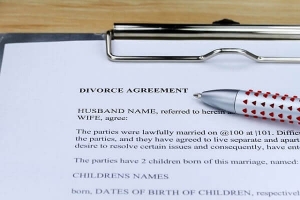
Usually, the higher earner is asked to pay support to the lower earner to help him or her maintain the marital lifestyle for some period of time after the divorce. Here are four things you need to know about spousal support in Florida.
1. Spousal Support May Not Be Ordered in Every Divorce
Courts will usually only order spousal support if one spouse can demonstrate an actual need for that support. For example, if one spouse interrupted his or her career to stay home with the children, the courts may find this spouse in need of spousal support. This is especially true if he or she never developed any other marketable skills, is older, and has been a stay-at-home spouse for a long time. However, if both spouses worked throughout the marriage, and earn comparable salaries, the court may find no need for spousal support.
2. Spousal Support Can Be Temporary
Traditionally, spousal support was meant to provide for the needs of a stay-at-home spouse who forfeited career advancement for the good of the family. But spousal support payments can be temporary. Spousal support payments may end when the divorce is final, or when the supported spouse has met a condition like selling the house, completing retraining, or getting remarried.
3. Spousal Support Can Often Be Modified
While some types of spousal support cannot be modified, some types of spousal support can be modified under certain circumstances. For example, rehabilitative support may be modified if the supported spouse completes his or her rehabilitative plan early, or fails to comply with the plan. Other types of support may be modified if one spouse dies, or if the supported spouse remarries or cohabitates with a partner in a supportive relationship.
4. How Long You Were Married Matters
The length of time that the marriage lasted can be an important factor in determining whether or not you are eligible for spousal support. In Florida, the marriage usually has to have been at least seven years. However, there are cases where alimony can be granted in marriages that lasted less than seven years, depending on the circumstances. In any event, there must be evidence to justify spousal support, no matter how short or long the marriage was.
Our Spousal Support lawyer Can Help
Spousal support can become a primary element of divorces, whether you are the person who might have to pay it, or the person who needs it. The attorney at Beller Law, P.L., have the experience you need to ensure your rights are retained and you get the support you need throughout the divorce.
If you are going through a divorce and have concerns regarding spousal support, let us help. To schedule a consultation, call us today at 904-288-4414 or use our online contact form to set up an appointment.
